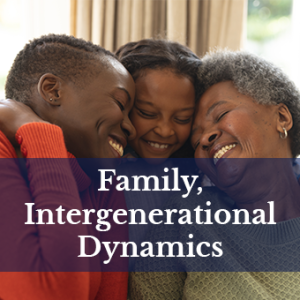
Intergenerational Relationships and Ageing: Exploring Family Dynamics and Support in Zambia
Presenter(s):
Anderson Simfukwe, Alzheimer’s Disease and Related Dementias In Zambia | ADDIZ, Zambia
Abstract
As Zambia’s population ages, understanding the complexities of family and intergenerational relationships becomes increasingly important. This paper explores the dynamics of family and intergenerational relationships in Zambia, highlighting the challenges and opportunities facing older people in a rapidly changing society.
Drawing on qualitative research conducted in several provinces of Zambia, this study examines the ways in which family and intergenerational relationships shape the experiences of older people. Our findings reveal that while traditional family structures and values remain important, urbanization, migration and economic challenges are creating new challenges for older people. Despite these challenges, intergenerational relationships remain a vital source of support and connection for older people. The paper concludes by discussing implications for policy and practice, emphasizing the need for initiatives that promote intergenerational relationships, family support and community-based programs to support older people’s solidarity and wellbeing.
Key Themes:
1. Intergenerational relationships:
The dynamics of relationships between older adults and their family members across all generations.
2. Family dynamics: The ways in which family structures and relationships shape ageing experiences.
3. Support systems: The types of support (emotional, financial, practical) exchanged within intergenerational relationships.
4. Ageing in Zambia: The specific challenges and opportunities facing older adults in Zambia.
Research Questions:
1. How do intergenerational relationships influence the ageing experiences of older people in Zambia?
2, What are the challenges and opportunities arising from changing family structures and support systems for older people in Zambia?
3. How can initiatives that promote intergenerational relationships and family support enhance the well being of ageing individuals,
Methodology:
This study employed a qualitative research design, using indepth interviews with older people and their family members. The study was conducted in several provinces of Zambia, Muchinga, Lusaka, Copperbelt and Eastern Province.
Expected Outcomes:
This research aims to contribute to a deeper understanding of intergenerational relationships and family dynamics in the context of ageing in Zambia. The findings will inform policy and practice initiatives that promote intergenerational relationships, family support and community-based programs to enhance the well being of ageing individuals.
Implications:
The study’s findings have implications for policy, practice and action, highlighting the need for:
1. Strengthening intergenerational relationships:
Initiatives that promote intergenerational connections and support
2. Promoting family support:
Programs that enhance family support systems and foster a sense of responsibility among family members.
3. Community-based programs:
Initiatives that provide support and services to older people, including healthcare, social support and economic empowerment.
This abstract provides a comprehensive overview of the research, highlighting the importance of intergenerational relationships and solidarity as well as family dynamics in shaping ageing experiences in Zambia.
Bio(s):
Anderson Simfukwe is a renowned expert in ageing and intergenerational relationships, with a focus on the African context. With extensive experience in research, policy, and practice, Anderson has established himself as a leading voice in promoting the rights and well-being of older adults.
Expertise
Anderson’s expertise includes:
1. Ageing and intergenerational relationships: Researching the dynamics of intergenerational relationships and their impact on ageing individuals.
2. Policy and advocacy: Informing policies that promote the rights and well-being of older adults.
3. Community development: Developing programs and services that support older adults and promote intergenerational connections.
Achievements
Anderson has:
1. Published research: Contributing to the growing body of knowledge on ageing and intergenerational relationships.
2. Informed policy: Shaping policies and programs that promote the rights and well-being of older adults.
3. Built capacity: Providing training and support to organizations working with older adults.
Current Work
Anderson continues to research, advocate, and engage with communities to promote the rights and well-being of older adults. His work aims to make a meaningful difference in the lives of older adults and their families.
